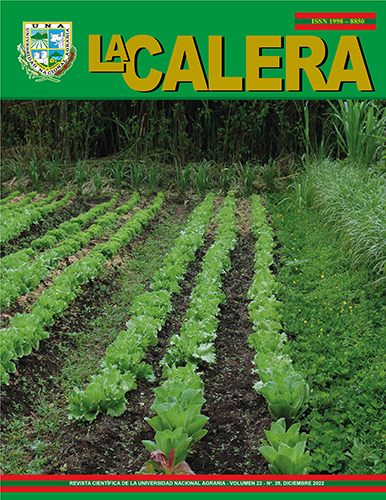Learning styles of students in the preparatory functional area for training in agricultural and environmental sciences based on Kolb's model
DOI:
https://doi.org/10.5377/calera.v22i39.15080Keywords:
Education, active, theoretical, reflective, pragmaticAbstract
Learning styles refer to how learners perceive, interact with and respond to the learning environment, as a result of heredity, their own life experiences and the demands of the current environment; also to the characteristic affective, cognitive and physiological behavior. The objective of this research is to identify the learning styles shown by the students of the "preparatory functional area for training in agricultural and environmental sciences" of the UNA Camoapa Campus, taught in the face-to-face modality. It is based on Kolb's theoretical model and follows a quantitative-descriptive research methodology. The analysis is approached from the application of the Kolb Learning Styles Test instrument to sixty first-year students of the year 2020. Among the results, it was found that the predominant learning style of the students is the assimilator, characterized by their thought. sequentially, analysis and synthesis of information, and its value system rewards logic and rationality. Since students learn more effectively when they are taught using different pedagogical strategies based on their predominant learning styles, it is incumbent on teachers to structure learning situations that are consistent with all styles.
Downloads
572
PDF (Español (España)) 242
EPUB (Español (España)) 138
Published
How to Cite
Issue
Section
License
Copyright (c) 2022 Universidad Nacional Agraria

This work is licensed under a Creative Commons Attribution-NonCommercial-ShareAlike 4.0 International License.

